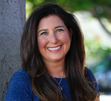Lisa Niver's Blog: We Said Go Travel, page 41
June 5, 2022
My in-person @strandbookstore panel Friday 6/10 launches...
My in-person @strandbookstore panel Friday 6/10 launches the brilliant debut #SEENHEARDPAID by @WIRED's @halophoenix with luminaries @leighnew @ZibbyBooks @yayamilee @petercatapano @nytimes @fischerharbage @KaitWells DaniellePerez #writing #publishing #nonfiction #fiction #kidlit pic.twitter.com/GwQeVBPm4M
— Susan Shapiro (@Susanshapironet) May 29, 2022
The post appeared first on We Said Go Travel.
Seen, Heard, and Paid: A Q&A with #ASJA2022 Keynote S...
Seen, Heard, and Paid: A Q&A with #ASJA2022 Keynote Speaker Alan Henry
The post appeared first on We Said Go Travel.
SEEN, HEARD and PAID by Alan Henry, Book Excerpt: Microaggressions
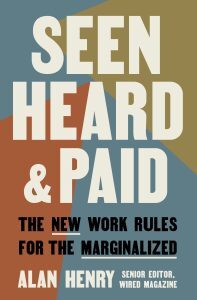
I am honored to share this excerpt from Alan Henry’s new book, Seen, Heard and Paid: The New Work Rules for the Marginalized. Alan is my incredible editor at WIRED!
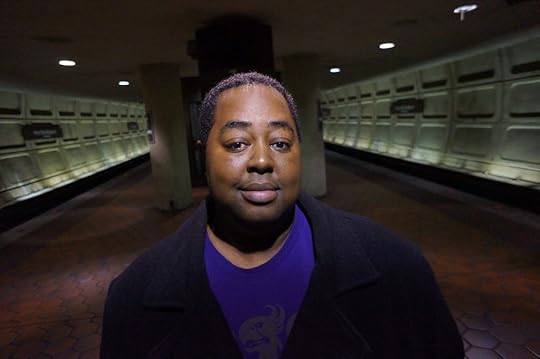 Alan Henry, Photo by Jack WallaceABOUT ALAN HENRY:
Alan Henry, Photo by Jack WallaceABOUT ALAN HENRY:Alan Henry is a journalist and editor who writes and commissions stories that help readers make better use of their technology and embrace a healthier relationship with it in their lives. He is currently senior editor at Wired. He was previously the Smarter Living editor at The New York Times, and before that the editor in chief of the productivity and lifestyle blog Lifehacker.
 SEEN, HEARD and PAID: Microaggressions
SEEN, HEARD and PAID: MicroaggressionsMicroaggressions are subtle, deniable actions that undermine a person or exclude or malign the individual. The actions are easily explained away by forgetfulness, ignorance, or anything but the malice that often inspires them. Perhaps a more blatant and specific example comes from my friend and colleague Hahna Yoon, who wrote a guide on how to deal with microaggressions for the New York Times. Yoon opens the piece by describing the time a friend’s boyfriend went out of his way to explain the concept and history of American Thanksgiving to her, as though she hadn’t been raised in the United States. She shared her experiences with online dating and being regularly approached by men who claim to love Asian women almost as a fetish, as though her entire self-had been reduced to her ethnicity. We could, as she explains, sit and argue over whether those people meant anything harmful by their actions. We could even discuss whether their actions are racist (they are) or whether their actions make those people racist (unclear, but that’s not the point). The point is that the actions are born from racial ignorance and result in behavior that’s actively harmful to the person it’s inflicted on.
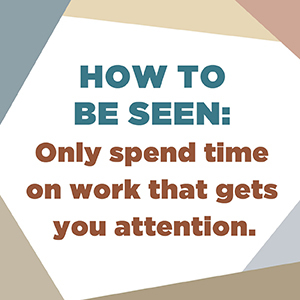
MICROAGGRESSIONS ARE SO INSIDIOUS BECAUSE THEY ARE HARD TO PIN DOWN
Their fleeting nature is key to why microaggressions are so difficult to pin down, examine, and respond to. People who face microaggressions struggle to find the right way to respond to them, because—and this is part of the malice—responding directly or overtly can be perceived as flying off the handle or playing into negative stereotypes of “bitchy” women workers or “angry Black” workers or cultural stereotypes where someone may not understand the subtleties of how badly they’ve been treated. Instead of focusing on the action and how the action was hurtful, the focus shifts immediately back to the intention of the perpetrator and whether that person meant to do harm, bypassing the need for apology or self-reflection on their part, entirely. In short, the man who approaches Yoon on a dating site and says “Wow, I love Asian women! Do you want to go out sometime?” may think he’s being flirtatious and approachable, but instead he has reduced Yoon’s entire self to the way he perceives her ethnicity as a tangible thing to be desired and obtained. He may not understand that this behavior is exploitative and racist, but it is. He may not have intended it to be this way, but that doesn’t change the fact that it is. And because he is opening with this microaggression, Yoon then has to either ignore it entirely or confront him on his behavior.
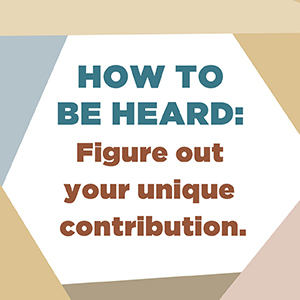
THE POWER OF “WHAT DO YOU MEAN BY THAT?”
One technique that has worked for me in moments of microaggression is to ask someone, completely seriously, “What do you mean by that?” Forcing another person to halt the flow of the conversation and reflect on exactly why you asked them what they meant— and forcing them to examine the meaning behind their words— is often enough to signal that they said something wrong. The question signals that they should probably stop short and think again before making a comment like that around you.
I’ve particularly found this technique helpful when talking with people who will make comments about a group I’m not a member of, or at least not visibly so. If someone makes an anti-Semitic comment, for example, a little stone- faced “What do you mean by that?” or “How did you come to think that?” goes a long way. In most cases, the reaction is embarrassment rather than defensiveness, and that’s enough. It’s not truly corrective, in that I don’t dispel the notions that caused the person to believe what they’re saying. But it’s certainly enough to make them aware that I don’t share their sentiment and I’m not the kind of person they should say such things to.
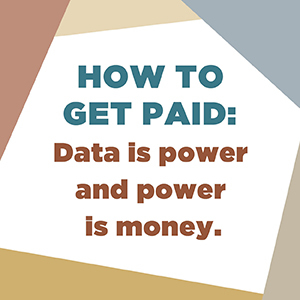
If you prefer an approach that focuses a bit more on educating the person or trying to correct their behavior for the long term, consider, first, letting them know that you’re sure their intentions weren’t malicious. This approach gives them the benefit of the doubt (although, frankly, some people don’t deserve it) and will help stave off the defensiveness. Then you let them know that what they said is harmful and explain why. Ruchika Tulshyan also has a suggestion. “In terms of making people aware,” she says, “I like to name behaviors and actions rather than label people. So I have found moderate success with saying ‘When you don’t invite me to meetings, I feel excluded. Could it be because I’m the only person of color?’ rather than, ‘You’re a racist for not inviting me to these meetings.’ ” I can vouch for this idea— unfortunately many people, especially privileged ones, perceive the possibility of being labeled racist, sexist, or otherwise discriminatory as somehow worse than the actual harmful treatment they inflict on others. Tulshyan continues, “Some re-search shows people with privilege can be so immunized by it, they may not even know they’re being biased. But if you’re met with anything else than genuine desire to learn and improve from the other person, I wouldn’t push the issue. It’s not the marginalized person’s problem to fix!”
Excerpted from SEEN, HEARD, AND PAID copyright © 2022 by Alan Henry. Used by permission of RodaleBooks, an imprint of the Crown Publishing Group, a division of Penguin Random House LLC, New York. All rights reserved. No part of this excerpt may be reproduced or reprinted without permission in writing from the publisher.

View this post on InstagramA post shared by Alan Henry (@halophoenix)
From Kirkus Reviews: “For members of minorities who want to navigate the corporate jungle, this book is an essential guide.”
Buy Alan Henry’s new book, Seen, Heard and PaidSeen, Heard, and Paid: A Q&A with #ASJA2022 Keynote Speaker Alan Henry
My in-person @strandbookstore panel Friday 6/10 launches the brilliant debut #SEENHEARDPAID by @WIRED's @halophoenix with luminaries @leighnew @ZibbyBooks @yayamilee @petercatapano @nytimes @fischerharbage @KaitWells DaniellePerez #writing #publishing #nonfiction #fiction #kidlit pic.twitter.com/GwQeVBPm4M
— Susan Shapiro (@Susanshapironet) May 29, 2022
The post SEEN, HEARD and PAID by Alan Henry, Book Excerpt: Microaggressions appeared first on We Said Go Travel.
June 3, 2022
Wise mourns loss of pillar and past president Dr. Eve Kur...
Wise mourns loss of pillar and past president Dr. Eve Kurtin-Steinberg
The post appeared first on We Said Go Travel.
My Mother was the Center of our Jewish Universe

by Drew Steinberg
Jewish values and the importance of family are engrained in me because of my mom. Because of her, we celebrated Shabbat every Friday night as our family of four, at a minimum, while I was growing up. High Holiday meals and Passover seders had full tables of extended family (blood relatives and friends who are equivalent to family). The din of stories of the holiday intertwined with family kibbitzing encapsulated my parents’ home, holiday after holiday, year after year. My mom made sure of it. When COVID hit, we were fortunate to be in close proximity that we were able to continue to have Shabbat and holiday meals together. Although it was not the large family Jewish celebrations we were all used to, it was still Judaism mixed with family.
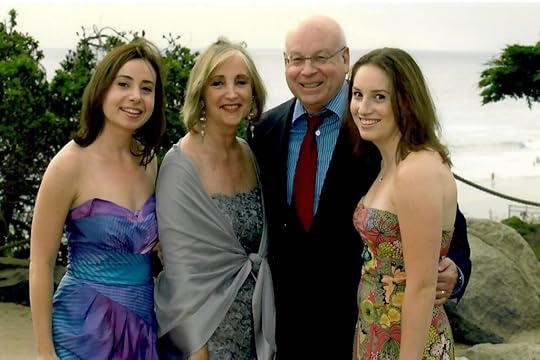
Our Passover this year was out of the norm, more so than COVID out-of-the-norm. A few days prior, my mom had her tenth procedure in four months, and we were anticipating another hospital discharge. The procedure and hospitalization were timed so that Mom would be home with all of us for our Passover seder. What we had hoped would be a morning discharge so that my mom could oversee the decorating of the table, ended up being a late afternoon discharge where we were rushing against the clock to get her home and situated in time for seder. Keeping the kids calm while getting my mom comfortable back in her house and also trying to prepare for the sacred holiday was overwhelming but manageable. The kids and my mom were so excited that they got to sing the “Frog song,” “Dayenu,” and others together. My mom got to watch her two older grandchildren (Pre-K students) sing the “Four Questions” in Hebrew. We got to have a new version of a Passover seder for my family this year. We were scared it would be our last seder with my mom, but we also somewhat knew how likely that would be the case. We wanted to make sure my mom got her holiday with her family at her home. She deserved that. As my family is still in the first weeks of my mom’s passing, everything feels raw and uncomfortable. I anticipate Jewish holidays going forward will have that uncomfortable feeling, especially Passover since it was her last holiday with us.
Losing a loved one is challenging. Losing a loved one while having young kids is a different challenge; then there is losing your person, who has been your loved one while having young kids. When my mom entered comfort care, she shared with her rabbi that her greatest sadness was that she was not going to get to experience her grandchildren growing up. She was not going to get to see them become of Bar Mitzvah age and use the tallit bags that she needlepointed. Her not being here to celebrate with my children and their milestones has already been so devasting for me. I am so grateful for the time she had with all of us, but especially her last visit with my boys.
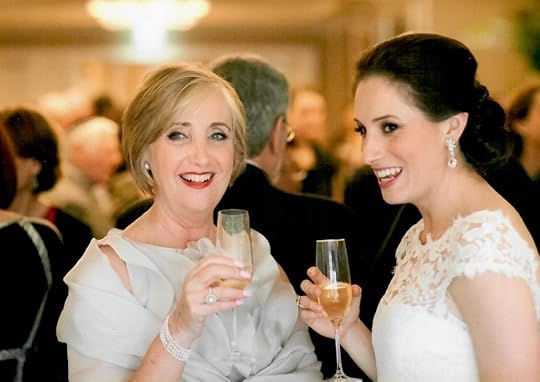
During my mom’s time in comfort care in the ICU, the Palliative Care team wanted to make sure that she felt at home, as much as possible. They asked us to bring things to decorate her room. Immediately my sister and I thought of bringing family photos and the grandchildren’s artwork, things my mom had decorating her bedroom since she got sick this last time. In addition to the decorations, my mom felt most at home having family nearby (immediate and extended). With that in mind, I wanted to figure out how to have my sweet young boys visit with her one last time. I am sure like many, I am not comfortable in an ICU room. The fact that you can see other patients through the glass walls/doors with their illnesses and ailments, which sometimes involve tubes or ventilators, is not something I enjoyed seeing. I did not want my boys to share my fear of ICUs, especially at such young ages.
I was extremely grateful when the Palliative Care team offered a patio visit where family could visit with my mom outside of the hospital room setting. It was both a way for the young kids to visit her as well as have a larger group visit since we were outside. Due to how she was doing, the patio visit got moved to a time where only my boys, my dad, sister, my husband, and I would be able to attend. That final visit for my boys with their grandma was something special. It was a time for my boys to be themselves. A time for them to see Grandma one last time and share their feelings with her. A time for me to see smiles on all their faces together for the last time.
My mom’s absence is already so palpable. Unfortunately, there were celebrations so close to her passing where the void was felt. I know the void will continue to be there. I just wish it didn’t have to be there at all.
The following was said in the handful of memoriams, both written and verbalized: My mom truly achieved greatness in all aspects of her life. Her life was tragically cut short when she had so much more to give to her family, her community, and the world. My mom was loved by many, respected by more, and admired by all. May her memory be a blessing.
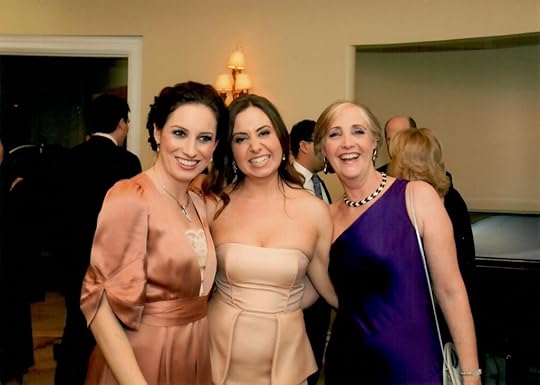
תהא נשמה זו צרורה בצרור החיים
T’hei n’shma zu tzrura b’tzrur ha-chayim
May the soul of their loved one be bound up in the bond of life.
May the memory of this loved one be for a blessing.
Wise mourns loss of pillar and past president Dr. Eve Kurtin-Steinberg
Stephen Wise Temple mourns loss of pillar and past president Dr. Eve Kurtin-Steinberg
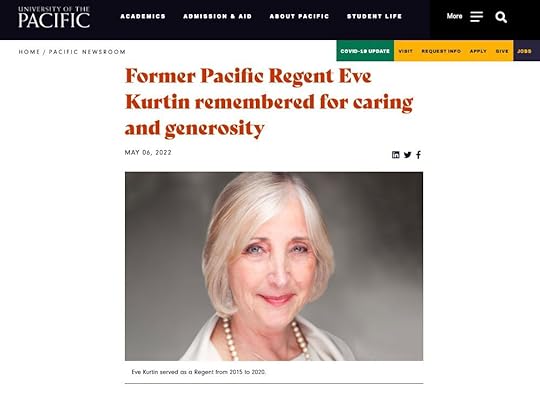
Former Pacific Regent Eve Kurtin remembered for caring and generosity
The post My Mother was the Center of our Jewish Universe appeared first on We Said Go Travel.
June 2, 2022
{{unknown}}The post appeared first on We Said Go Travel.
{{unknown}}
The post appeared first on We Said Go Travel.
May 31, 2022
Speaker at Turkish Consulate: Niver’s News: May 2022
 May News 2022 with Lisa Niver & We Said Go Travel:Thank you to Gizem and her Turkish Coffee Lady Foundation for inviting me to be the keynote speaker at Premier of the “Turkish Coffee Tales of Anatolia” documentary at the Turkish Consul General’s Residence.
May News 2022 with Lisa Niver & We Said Go Travel:Thank you to Gizem and her Turkish Coffee Lady Foundation for inviting me to be the keynote speaker at Premier of the “Turkish Coffee Tales of Anatolia” documentary at the Turkish Consul General’s Residence.
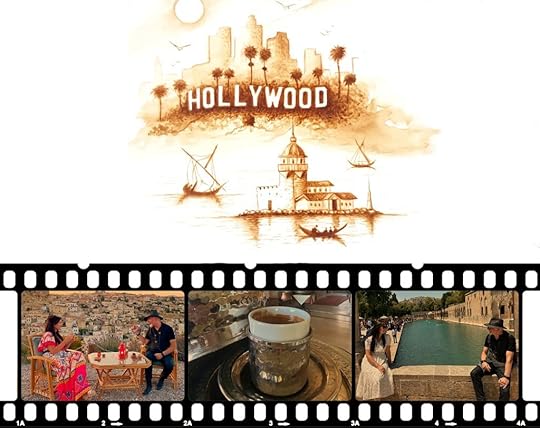

View this post on InstagramA post shared by Lisa Niver
(@lisaniver)
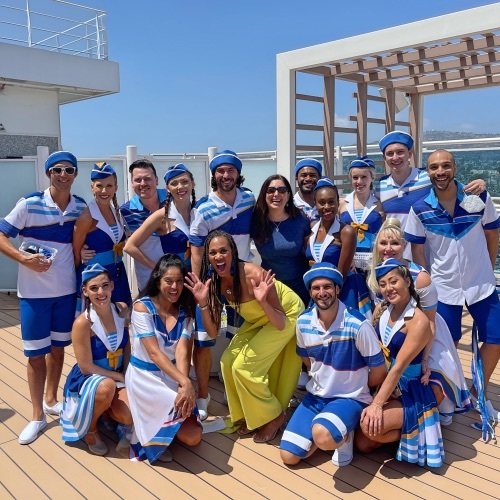 Cruise Ship Stories: Mexico on the Majestic Princess and the naming of the Discovery PrincessExplore the Majestic Princess Spring break in MexicoMexico Tours from Majestic Princess: Cabo San Lucas whale watching, Mazatlan cliff divers and Puerto Vallarta walking tourDiscovery Princess Naming Ceremony
Cruise Ship Stories: Mexico on the Majestic Princess and the naming of the Discovery PrincessExplore the Majestic Princess Spring break in MexicoMexico Tours from Majestic Princess: Cabo San Lucas whale watching, Mazatlan cliff divers and Puerto Vallarta walking tourDiscovery Princess Naming Ceremony
 New articles:Our Stories Matter: Writing Can Heal Our Hearts for Consciously UnbiasedMy Pasadena StayCation: The Huntington Library, Arlington Garden and Nick’s PasadenaMy Favorite Reese’s Book Club BooksHula hooping Around the World
New articles:Our Stories Matter: Writing Can Heal Our Hearts for Consciously UnbiasedMy Pasadena StayCation: The Huntington Library, Arlington Garden and Nick’s PasadenaMy Favorite Reese’s Book Club BooksHula hooping Around the World
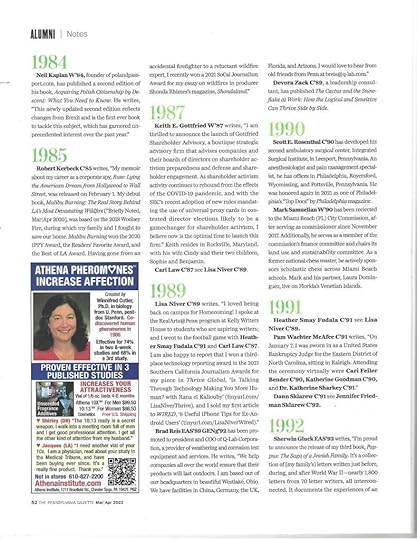
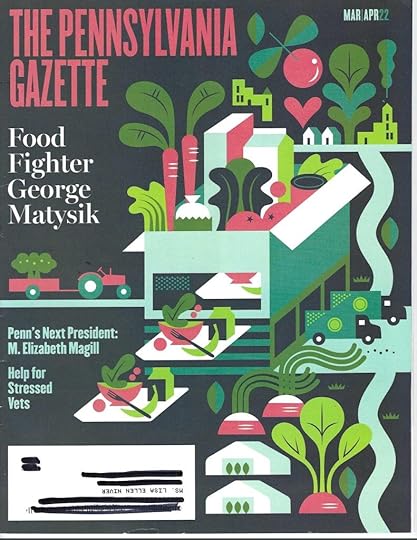
Thanks PENN GAZETTE for sharing my alumni news!
Lisa Niver C’89 writes, “I loved being back on campus for Homecoming! I spoke at the RealArts@Penn program at Kelly Writers House to students who are aspiring writers; and I went to the football game with Heather Smay Fudala C’91 and Carl Law C’87. I am also happy to report that I won a third-place technology reporting award in the 2021 Southern California Journalism Awards for my piece in Thrive Global, ‘Is Talking Through Technology Making You More Human? with Rana el Kaliouby’ (tinyurl.com/LisaNiverThrive), and I sold my first article to WIRED, ‘8 Useful iPhone Tips for Ex-Android Users’ (tinyurl.com/LisaNiverWired).”
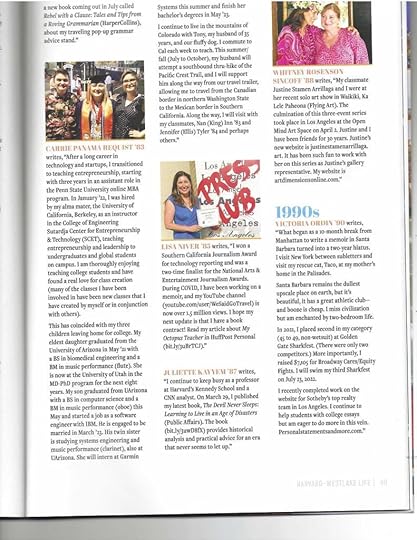
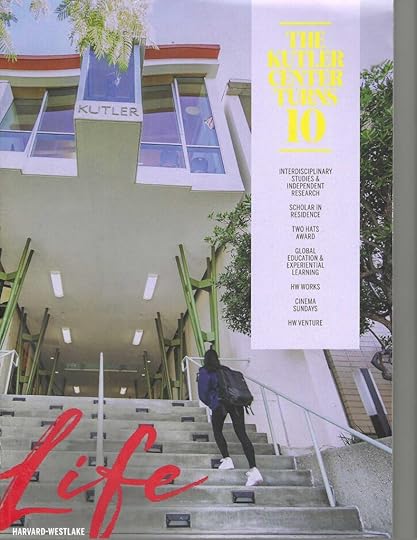
Thanks Harvard Westlake for sharing my alumni news:
LISA NIVER ’85 writes: “I won a Southern California Journalism Award for technology reporting and was a two-time finalist for the National Arts and Entertainment Journalism Awards. During COVID, I have been working on a memoir and my YouTube channel is now over 1.5 million views. I hope my next update is that I have a book contract! Read my article about My Octopus Teacher in HuffPost Personal.“
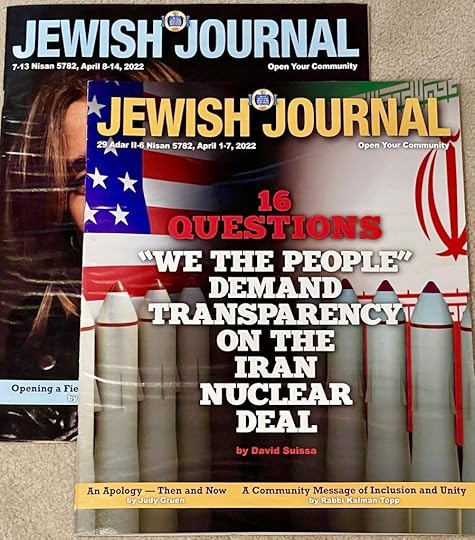 Since the Jewish Journal resumed print publication in Fall 2021, I have been in the Blog Bytes section eighteen times! Click here to see me in print in September 2021, October 2021, November 2021, December 2021 , January 2022, Feb 2022 AND April 2022!I am working on videos from my May adventures in Elkhart Lake, Wisconsin:WHERE CAN YOU FIND MY TRAVEL VIDEOS?
Since the Jewish Journal resumed print publication in Fall 2021, I have been in the Blog Bytes section eighteen times! Click here to see me in print in September 2021, October 2021, November 2021, December 2021 , January 2022, Feb 2022 AND April 2022!I am working on videos from my May adventures in Elkhart Lake, Wisconsin:WHERE CAN YOU FIND MY TRAVEL VIDEOS?Here is the link to my video channel on YouTube where I have over 1.58 million views on YouTube! (Exact count: 1,588,000 views)
Thank you for your support! Are you one of my 3,530 subscribers? I hope you will join me and subscribe! For more We Said Go Travel articles, TV segments, videos and social media: CLICK HERE
Find me on social media with over 150,000 followers. Please follow on TikTok: @LisaNiver, Twitter at @LisaNiver, Instagram @LisaNiver and on Facebook, Pinterest, YouTube, and at LisaNiver.com.
Fortune Cookie SAID:“A new adventure is at your fingertips.”“A new love is waiting around the corner.”
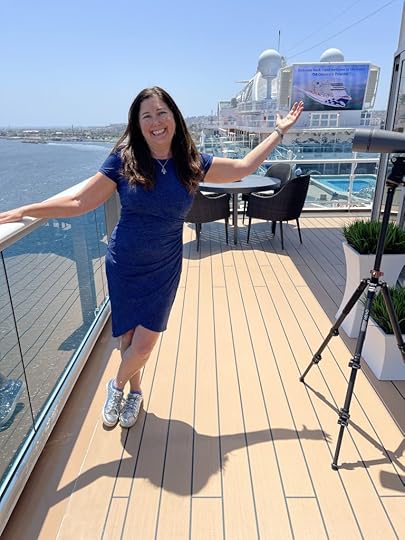 Lisa Niver in the Sky Suite on Discovery Princess –Naming Ceremony Princess Cruises
Lisa Niver in the Sky Suite on Discovery Princess –Naming Ceremony Princess CruisesThe post Speaker at Turkish Consulate: Niver’s News: May 2022 appeared first on We Said Go Travel.
May 30, 2022
The post appeared first on We Said Go Travel.
The post appeared first on We Said Go Travel.
Exploring Pasadena, A California Staycation
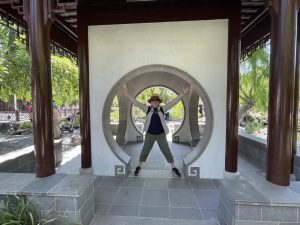


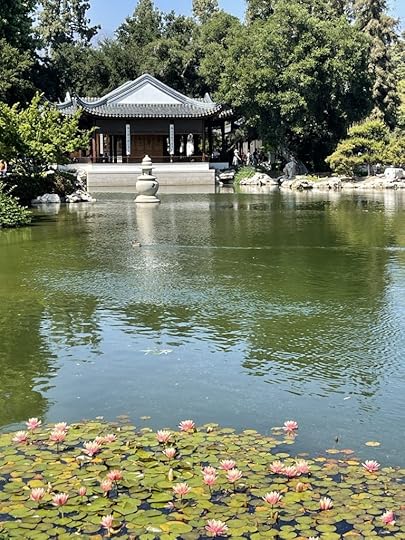
Pasadena is relatively close to where I live in Los Angeles and during COViD I explored more of it. You may think of Pasadena as the place for the Rose Bowl football game, the Tournament of Roses Parade as well as the place where Jet Propulsion lab, Caltech and ArtCenter College of Design make change happen!
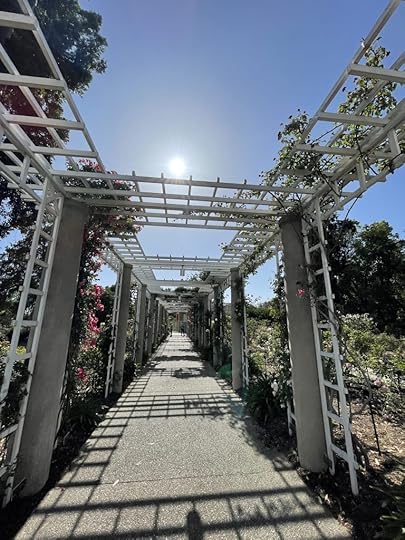
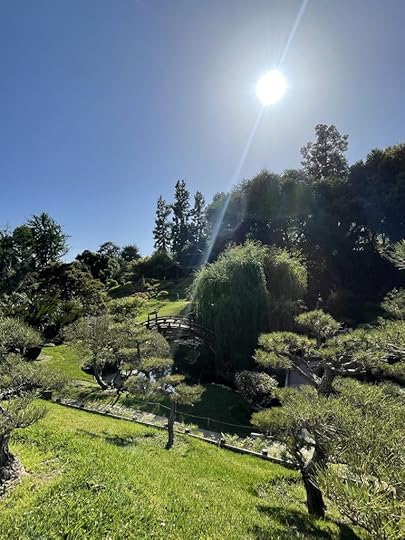
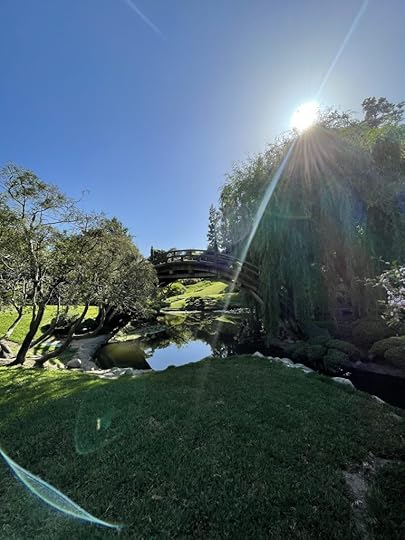
Recently, I spent the day at the Huntington Library, Art Museum and Botanical Gardens. The grounds are vast with 120 acres of botanical gardens, 42,000 works of art, 11 million library objects, 7 million manuscripts. It seemed like I had traveled to another country. The Chinese garden made me feel like I was transported back to my travels in Beijing and beyond. I also loved the Japanese Gardens, the Rose Garden and the Desert Gardens. I cannot wait to return.
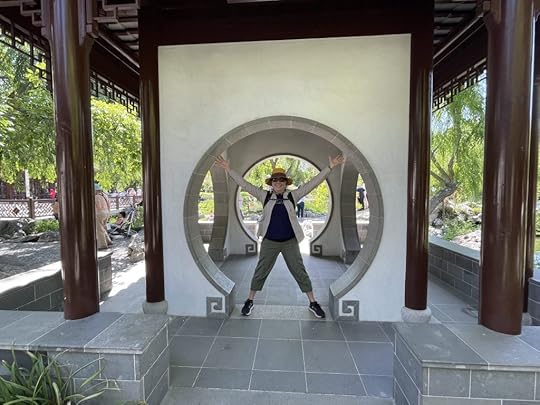 Susan and I decided to catch up on all of our missed celebrations during COVID with a lovely dinner at Nick’s Restaurant after our day at the Huntingon.I was able to walk in Arlington Garden with my Ms. Magazine editor, Carmen. We especially loved the labyrinth.
Susan and I decided to catch up on all of our missed celebrations during COVID with a lovely dinner at Nick’s Restaurant after our day at the Huntingon.I was able to walk in Arlington Garden with my Ms. Magazine editor, Carmen. We especially loved the labyrinth. View this post on InstagramA post shared by Lisa Niver
(@lisaniver)
Arlington Garden is a three acre garden on Caltrans-owned land. It is leased to the City of Pasadena and entrusted by the city to Arlington Garden in Pasadena, a non-profit 501(c)3 corporation. This garden is not only friendly to people and pets but also serves as a refuge for Pasadena’s native fauna. Birds, bees and butterflies are particularly abundant and can be seen throughout the year.
Arlington Garden was developed in collaboration between Arlington Garden in Pasadena, City of Pasadena, Pasadena Department of Public Works, and Pasadena Water & Power, with help from Pasadena Beautiful Foundation and the Mediterranean Garden Society. Continued support comes from garden clubs, local businesses, nurseries, neighbors and friends.
Where is your favorite California staycation?
See my adventures in Joshua Tree National Park and Death Valley National Park
The post Exploring Pasadena, A California Staycation appeared first on We Said Go Travel.
May 27, 2022
The post appeared first on We Said Go Travel.
The post appeared first on We Said Go Travel.
We Said Go Travel
We Said Go Travel is a global community of over sixteen hundred writers with articles from every continent.
Stories are shared with photos and video from a perspective of the transformative power of travel. We Said Go Travel has hosted live and online events as well as travel writing contests around the world. ...more
- Lisa Niver's profile
- 57 followers


